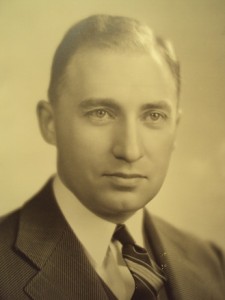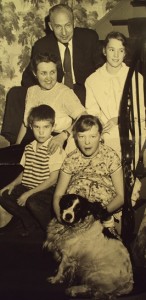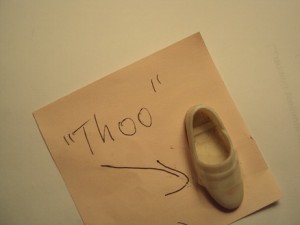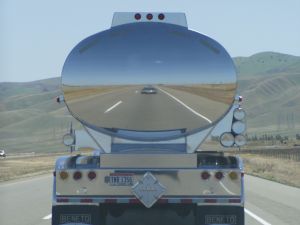Today is the 20th anniversary of my Dad’s death in 1991. He married for the first time at 42 and was privileged to hit the 50 year mark with Mom, shortly before he died. Although he didn’t have even one health issue at the ripe old age of 92, a fall that splintered his pelvis into 13 pieces proved fatal. Although a young person could have tolerated traction for so long, immobilizing an elderly man worked against his survival.
Dad was born in 1899, a fact we children flaunted on school playgrounds. Mom used to say he was a contemporary of D.L.Moody who died 3 months after Dad was born. As a kid I used to reason that older was wiser, so Dad must have been the wisest father around.
The first child of parents who’d immigrated to America as teens, Dad spoke only Swedish when he walked into 1st grade at age 6. But he was quiet and observant, quickly learning English and other American ways, like how to avoid the knuckle-smack of an angry public school teacher.
He lost a little brother to pneumonia when he was 12, and his mother to TB at 13. After helping raise two younger siblings then training with the Army during World War I, he rode a streetcar to Northwestern University and emerged with two degrees. He navigated the Great Depression as a 30-something, and worked tirelessly to preserve his dying father’s real estate business.
My sister, brother and I loved hearing stories about the early 20th century, viewing him as a walking, talking history book. As a kid he chased after horse-drawn ice wagons hoping for loose chips on a hot day, and watched donkeys drag wagons of dirt out of hand-dug tunnels, Chicago’s eventual subway system. The city was paved with mud, election results were announced with fireworks, and all of it fascinated us.
Dad was honest to a fault. If a letter arrived with the stamp uncanceled, he’d say, “You can’t reuse that stamp, you know. It did what it was bought to do, and using it again would be robbing the postal service.” Letters only cost two cents then, but his statement was more about integrity than money.
Despite a bumpy background, Dad never experienced self-pity or bemoaned his losses, accepting life as it was. Although he wasn’t demonstrative and rarely shared his emotions, we all knew he loved us and would do anything in his power to help us. We also knew he gave 50% of his income to God’s work at the peak of his business career, which spoke volumes about his faith priorities.
My siblings and I were given a gift in Dad, but also a responsibility. Scripture says, “When someone has been given much, much will be required in return; and when someone has been entrusted with much, even more will be required.” (Luke 12:48)
And then there was Dad, who had much taken, but gave more than he’d been given anyway.
“Those who have been given a trust must prove faithful.” (1 Corinthians 4:2)






